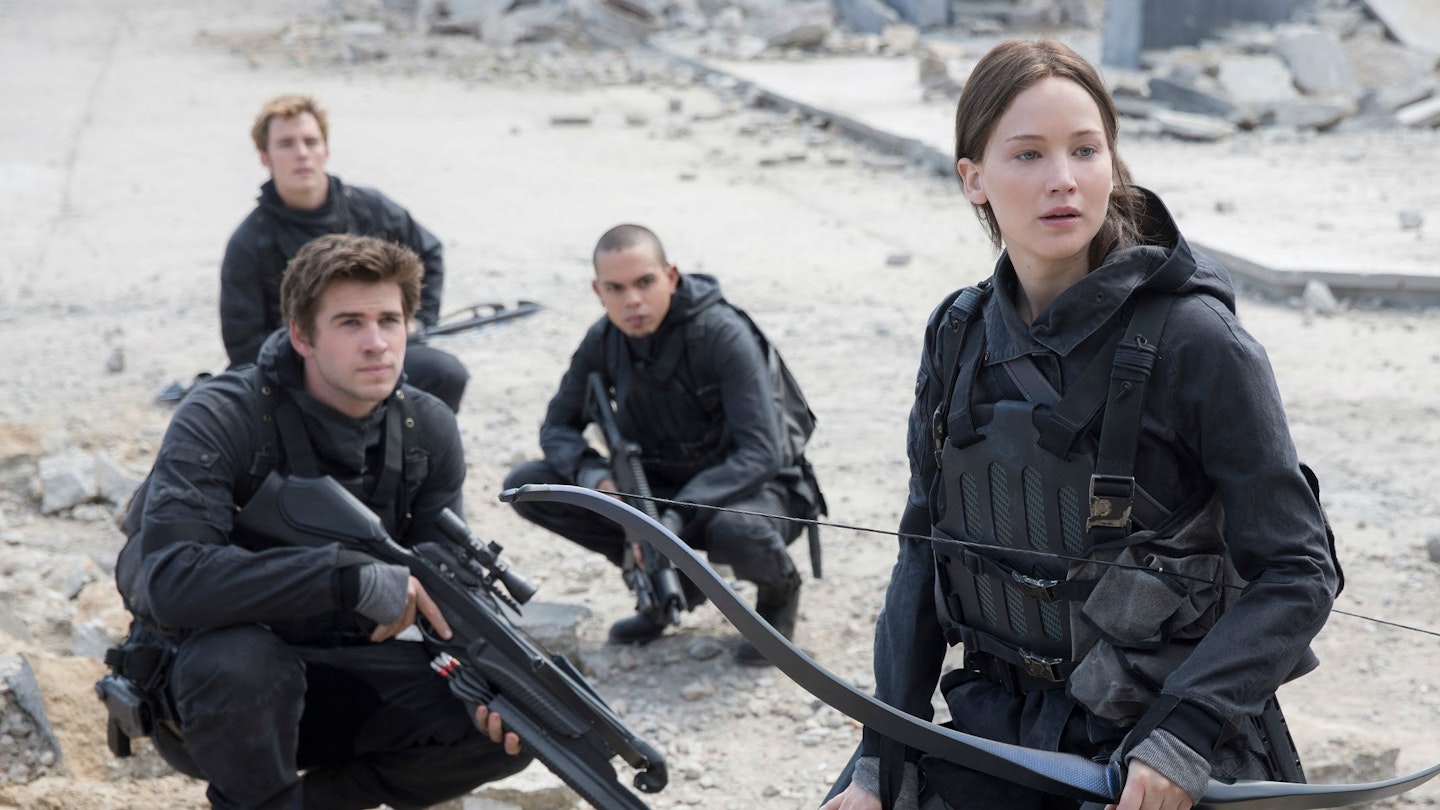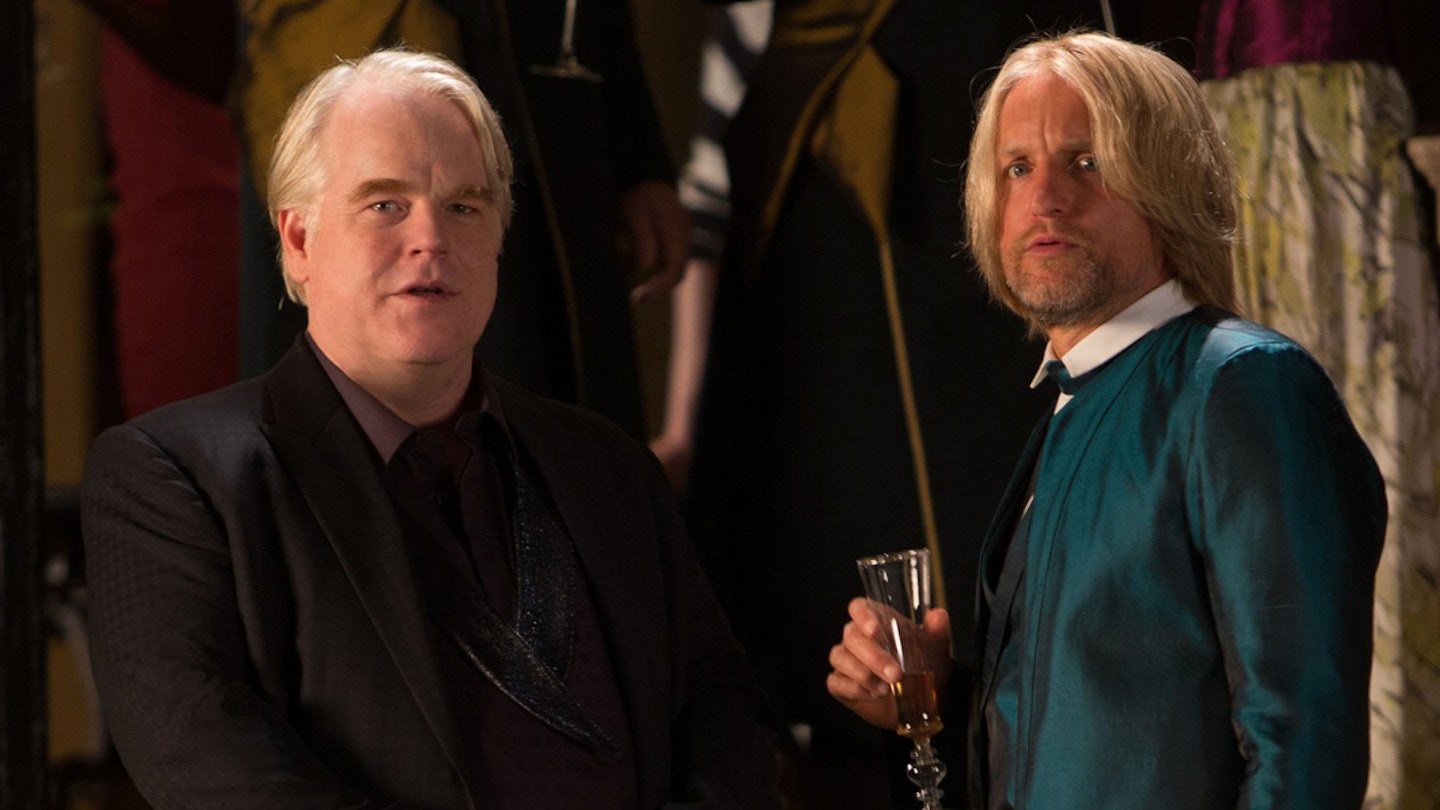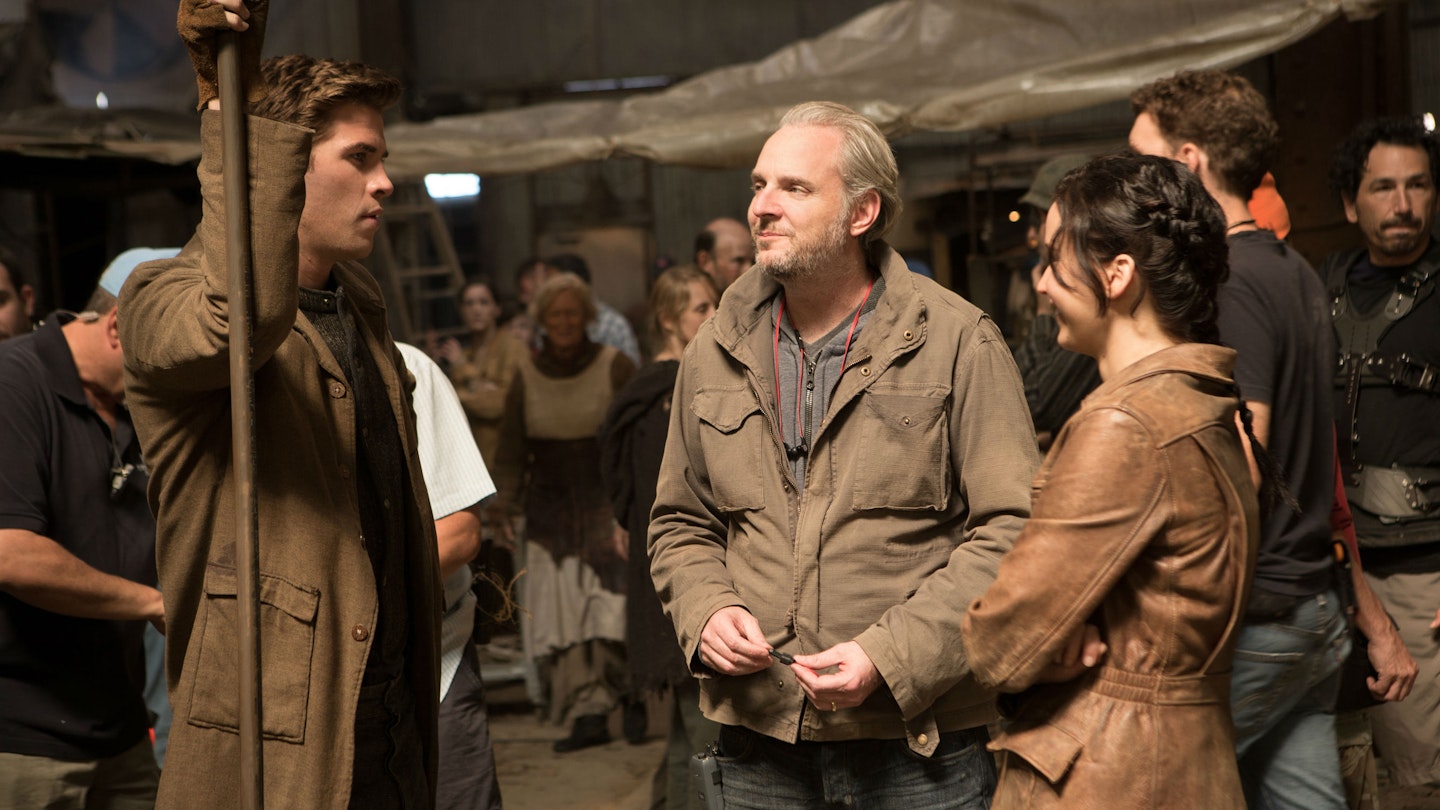Ladies and gentlemen, welcome to the fourth annual Hunger Games movie. Since Jennifer Lawrence first fired her flaming arrow back in the 2012 original, the dystopian sci-fi series has made its mark on the cinematic landscape (with a not-too-shabby $2 billion in the bank already). The odds are heavily in its favour for another hit, as the series draws to a close with Mockingay - Part 2.
We caught up with director Francis Lawrence, the steward of the series since Catching Fire, to chat about a punishing shooting schedule, an expectant fanbase, and an acting masterclass from the late, great Philip Seymour Hoffman in his final role.
How was it shooting the two Mockingjays back-to-back?
It's a huge undertaking. I have to say, I liked it. I think it would be different if it wasn’t part of one complete story. I’d have a harder time doing it back-to-back where the movies aren’t connected at all. If they were just different chapters, that might get weird. But because this was all part of one big story, and we could block shoot, it really helped. The actors knew where they were going through the entire story and you could track that. It was very useful.
Katniss goes through a huge amount of trauma in the film. With all that emotional baggage to carry, how did you settle on a mood for the film that wasn't overwhelming?
It comes from a character perspective. Jennifer [Lawrence], the author Suzanne [Collins], Nina [Jacobson] the producer, and I made very specific decisions that this was about a girl falling apart. She’s been so traumatised and gone through so much loss that she’s kind of unwinding, in the sense that she almost stops feeling things. That really helped ratchet up the emotional catharsis - especially towards the end of the film, when it all finally comes out, and she’s able to start to heal.

How involved was Suzanne Collins involved in the process?
Suzanne is very involved. When I was hired for Catching Fire, she was one of the first people I went to go meet with. I spent three days with her and created the beat-sheet for what we wanted the movie to be with the writer. She really helped guide the process and was a great collaborator. Because that went very well, we did the same with the Mockingjay movies. She was involved all the way through.
The Hunger Games fanbase is huge, and rabidly protective. Do you feel them breathing down your neck when making a film like this?
I feel a responsibility to them, but I’m also a fan too, so I feel like, even from the beginning, I trusted that I was going to make the choices that they would want to see. Of course, there’s always some secondary character from the book that somebody loves who won’t make the movie, because of time constraints, and I’m sorry for anyone who didn’t get their favourite character in. But I never felt pressure. I felt support.
There are obvious parallels with this film and recent real-life revolutions around the world. How does it feel to have, for example, protesters in Thailand adopting the Hunger Games salute as part of their movement?
Well, Suzanne is just writing about things that have been happening for thousands of years. Conflicts where both sides are a bit questionable and violence is everywhere – it’s nothing new. It gets a little more modern when you start talking about the media and entertainment and the manipulation of people for the sense of celebrity. But it feels very reflective of certain parts of society now. So to see imagery and iconography from the movies then get used in those situations – like “If we burn, you burn with us” in Ferguson, or the three-fingered salute in Thailand – it’s like art-imitates-life-imitates-life again.
The death of Philip Seymour Hoffman last year was an unexpected tragedy. He’d already filmed most of his scenes but did anything change as a result? The scene towards the end where Haymitch reads a letter seemed like it may have been an amendment.
That was supposed to be him. He had two big dialogue scenes which he didn’t shoot: one was that scene, and there was one in Mockingjay - Part 1 that we gave to Elizabeth [Banks]. He had done most of his work. I’m glad that we got as much as we did. I would have loved for him to be a bigger presence in this movie. He is one of my favourite actors of all time, so it was an honour to get to work with him. He loved the stories, loved the character, got along with everyone in the cast, and I learned a lot about acting from him. Unlike Jennifer [Lawrence], he loved rehearsal and talking things through, sort of grinding away at scenes at relationships and ideas. I learned a tremendous amount from him.

Why does Jennifer dislike rehearsals?
She’s very instinctual. The way we work is: she reads the script, we sit down, I talk her through what I consider her character’s arc is. We talk about the meaning and subtext, then we come to an agreement, and on the day it’s my job to locate her within that path, and that’s her. She’s just such a feeling, instinctive person that she can just put herself in that scene. It’s always surprising and pretty astonishing.
The Hunger Games has started a wave of Young Adult adaptations. What's your take on the competition?
I haven’t seen The Maze Runner. I’ve seen the Divergent films. I like them! I like...elements of them. I hate to say it, but I don’t think they’re as good as our movies.
What is it about dystopian futures that so appeals to the YA audience?
I don’t know. I’ve heard from some people that it’s a reflection of the anxiety teenagers have for the future world. I’m not positive. I think it just gives you a pallette for telling stories. It was kind of great for the Hunger Games, because Suzanne could create this brand new society from scratch, with a capital and a dictator and districts. The great thing about what she did is to build it up from strong ideas. I think it has heft.
The Hunger Games: Mockingjay - Part 2 is in UK cinemas from November 19.
